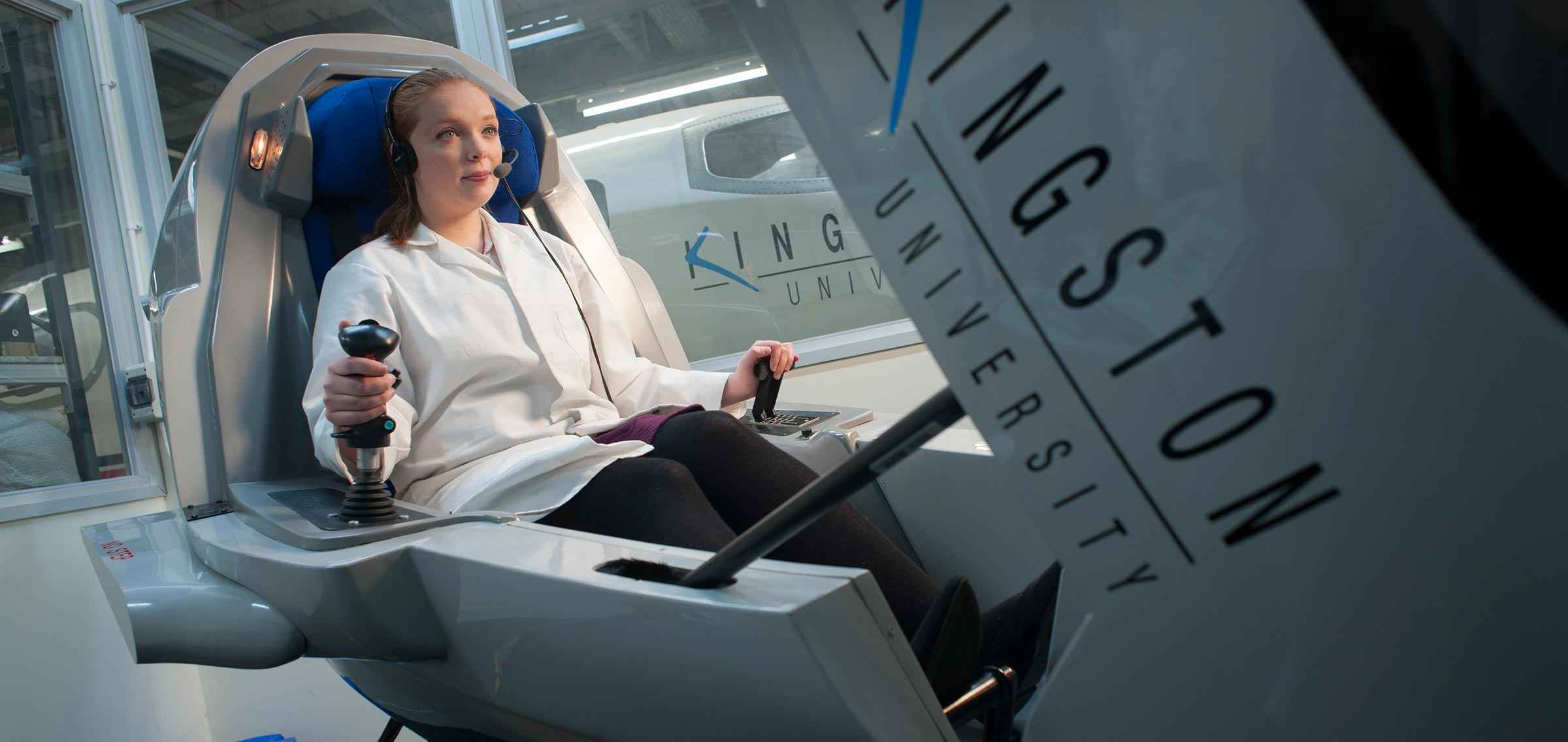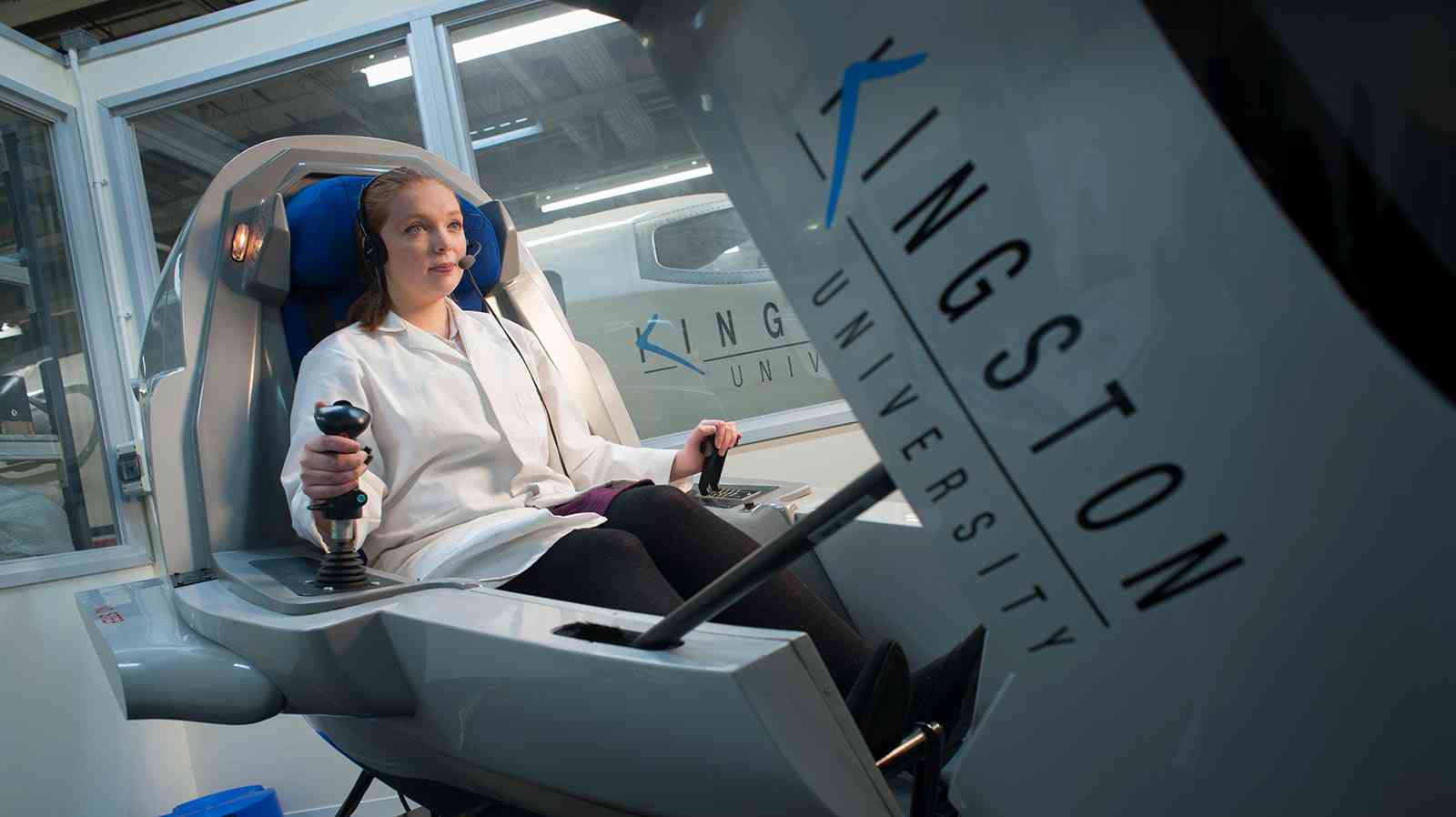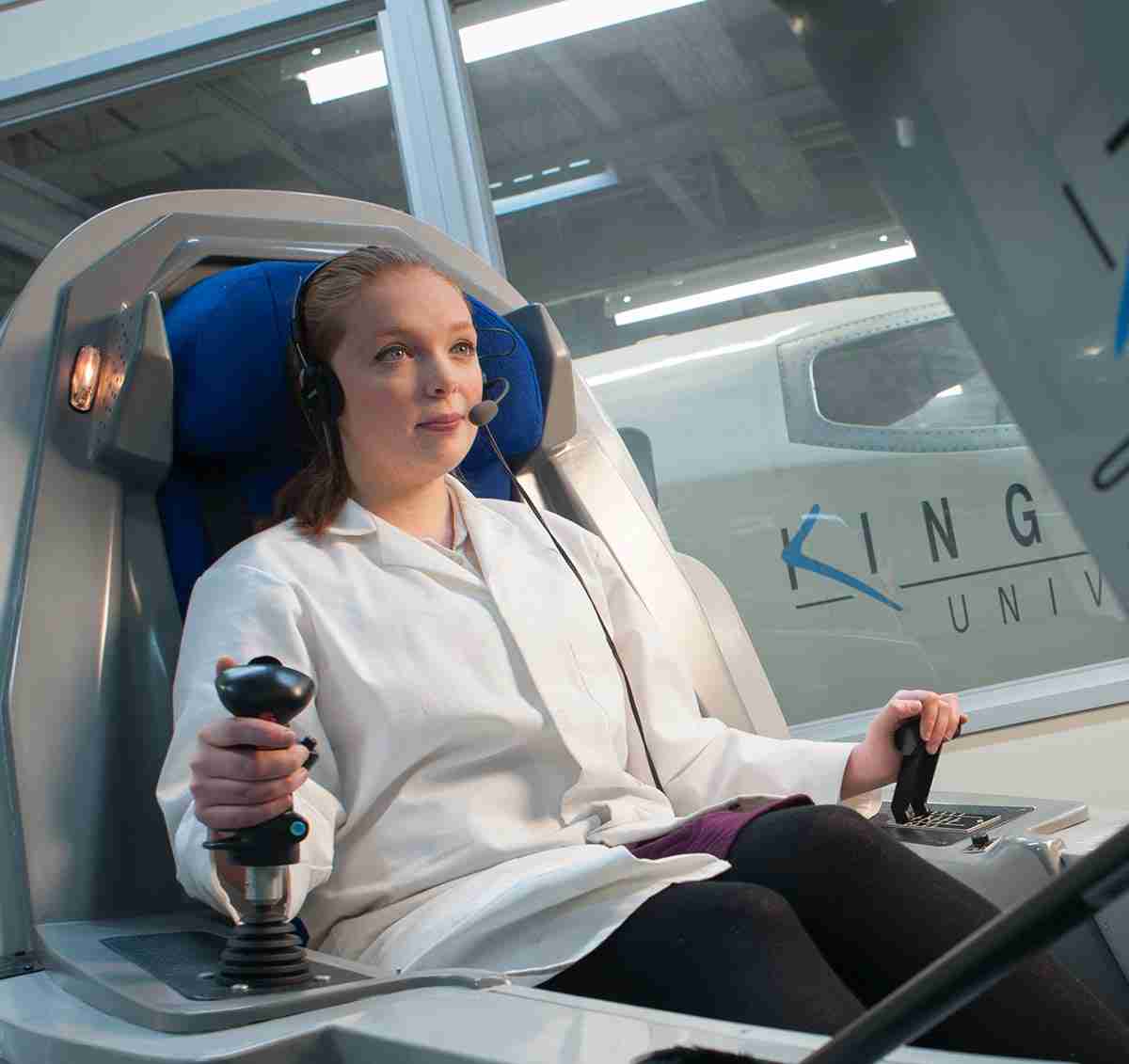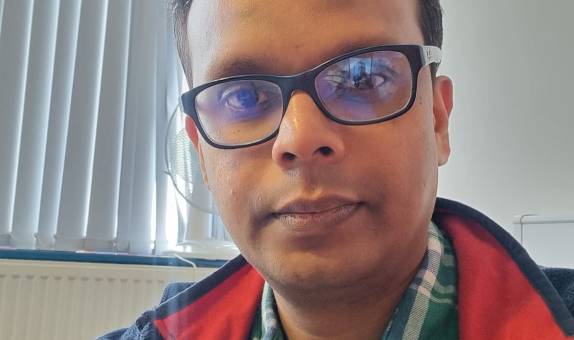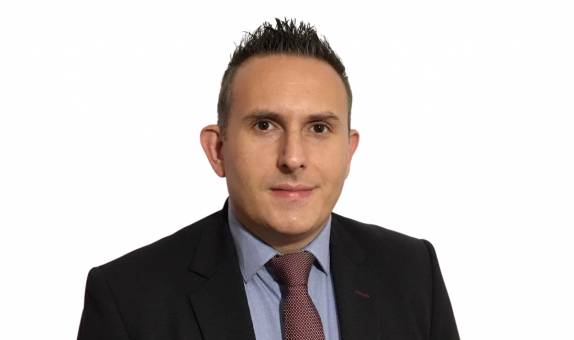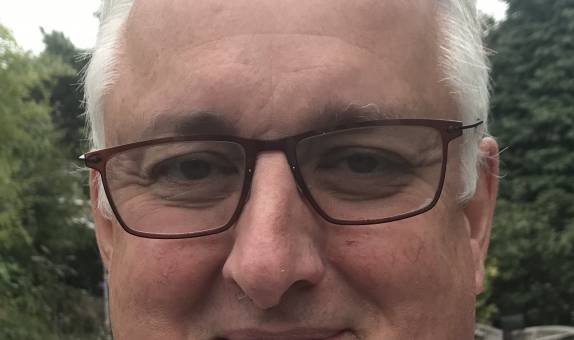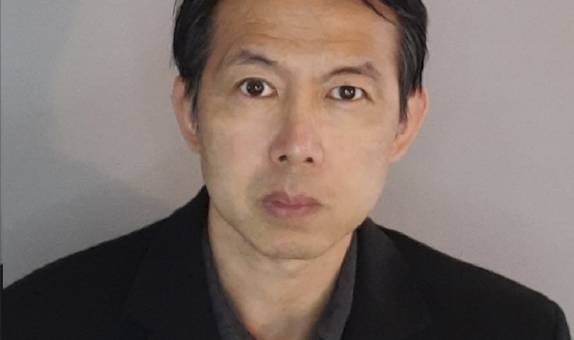Aircraft Engineering BEng (Hons) top-up

Teaching Excellence Framework (TEF) Gold award
Our commitment to high quality teaching has been recognised with a TEF Gold rating. The University has received an overall rating of Gold, as well as securing a Gold award in the framework's two new student experience and student outcomes categories.
Why choose this course?
Do you have an engineering foundation degree from Kingston University? Or, do you hold an EASA Cat B aircraft engineering licence? If so, this course is a perfect choice to top-up your qualification to an honours degree.
Your studies will include exploring the performance of fixed-wing and rotary-wing aircraft and analysis of their structures, and evaluating materials for aircraft applications.
You'll also study the principles of air transport economics and how they affect management decision-making and project planning and mapping. You'll also undertake group and individual projects on industry-related topics.
| Course | Attendance | UCAS code/apply | Year of entry |
|---|---|---|---|
| Aircraft Engineering BEng(Hons) top-up | 1 year full time | H416 | 2025 |
| Aircraft Engineering BEng(Hons) top-up | 2 years part time | Apply direct to the University | 2025 |
PLEASE NOTE: If you are applying from our partner institution, Exeter College on the Aircraft Engineering FdEng then please do not apply via UCAS. Please liaise with your college on how to best apply for Aircraft Engineering BEng (Hons) top-up.
| Main Location | Roehampton Vale |
Reasons to choose Kingston University
- This course aligns with the UK Standard for Professional Engineering Competence (UK-SPEC) and meets the academic requirements for Incorporated Engineering (IEng) Membership of the Royal Aeronautical Society (RAeS).
- You'll be able to enhance your learning through an industrial placement with an approved employer.
- We have a successful history of providing graduates to the aviation industry, especially around Heathrow and Gatwick airports.
- Through this course, you can obtain an Aircraft Engineering BEng (Hons) in one year (full-time) or two years (part-time).
What you will study
You will study fixed-wing and rotary-wing aircraft performance and will analyse aircraft structures. You will evaluate materials for aircraft applications and the fundamental principles of air transport economics and their application to management decision-making.
You will also learn about the fundamentals of project planning and mapping, and will complete significant group and individual projects on industry-related topics.
Partner institutions
The following partners also deliver the top-up course:
- Nilai University, Malaysia. This course is currently only available to students who complete the Nilai University Diploma in Aircraft Engineering. For further information, contact louie@nilai.edu.my.
- Sri Lankan Aviation College (SLAC). For further information, contact thiwanka.sundarapperuma@srilankan.com.
Application for places on these courses must be made directly to the institute. Please note that local restrictions apply.
Modules
You will study fixed-wing and rotary-wing aircraft performance and will analyse aircraft structures. You will evaluate materials for aircraft applications and the fundamental principles of air transport economics and their application to management decision-making.
You will also learn about the fundamentals of project planning and mapping, and will complete significant group and individual projects on industry-related topics.
Core modules
Air Transport Economics
30 credits
Throughout the course of your studies, you will have so far studied material that has been focused on a specific role or roles within the air transport industry whether it be aircraft design, maintenance, operations or repair and overhaul. The aim of this module is to take a step back and explore how employers within the various sectors of the air transport industry combine all these functions in order to make a profit.
In addition to looking in detail at the overall profit and loss equation:
Traffic x Yield - Output x Cost = Profit or Loss
The module also compares the operation of the air transport market with that in other sectors and, in more general terms, looks at what makes the industry tick. The standard method of recording and reporting financial performance is also considered.
On successful completion of this module, you will not only understand how your future role will contribute to your employer's success but, should you decide to move away from the air transport sector, you will have a firm grounding in the general economic principles by which all industries operate.
Aerospace Technology
30 credits
This module is designed for students from a range of aerospace-related programmes. It provides an understanding of how the principles of aerodynamics, propulsion, structures and materials science all determine the configuration and performance of fixed and rotary wing aircraft.
Individual Project (Aircraft IEng)
30 credits
The overarching aim of this individual project module is to provide each student with the opportunity to impress. Working on a topic of their own choosing, the student, with minimal guidance from their supervisor, should apply approximately 300 hours of individual effort into the analysis of a problem and determination of the best solution and/or course of action. The analysis can take a variety of forms ranging from an in-depth comparison of a number of already documented potential solutions to the collection and comparison of experimental and theoretical data. The topic investigated should ideally be of an aircraft maintenance or engineering nature, though other topics may be permitted with the agreement of the module leader.
By completing a capstone project of this type, each student is able to demonstrate that they can draw together the information from all the other teaching and learning on the course and past learning and experience; and through innovation and analysis, demonstrate that they truly are independent learners.
Aircraft Maintenance Operations
30 credits
This module is designed to encourage independent learning and develop the skills required of those holding senior posts in the aviation industry; particularly in the field of aircraft maintenance. It therefore provides an ideal opportunity for you to develop and demonstrate a number of intellectual, practical and transferable skills.
The module starts by briefly examining maintenance cost drivers, airline logistic support processes and cooperative logistic support strategies before moving onto project planning. In project planning, the basic processes of determining tasks, writing aims and objectives and estimating time are considered before looking at the planning and mapping of projects using network diagrams and finally network analysis.
The purpose of completing the preparatory studying is to prepare you for what is to follow: a significant group exercise in which you work together to produce a realistic and cost effective maintenance solution for an airline operation. The details of which (routes, flight schedule, aircraft details etc.) are provided by the course team. The project involves reviewing the "scenario" to determine the exact requirements, planning for successful completion of the project, identifying options and determining costs through research, analysing data collected and formulating an evidence-based solution and presenting the findings. As part of the project, you will produce a project plan, do a group presentation, produce a substantial written report, and maintain a project log book.
Department of Aerospace and Aircraft Engineering
Future Skills
Knowledge to give you the edge
Embedded within every course curriculum and throughout the whole Kingston experience, Future Skills will play a role in shaping you to become a future-proof graduate, providing you with the skills most valued by employers such as problem-solving, digital competency, and adaptability.
As you progress through your degree, you'll learn to navigate, explore and apply these graduate skills, learning to demonstrate and articulate to employers how future skills give you the edge.
At Kingston University, we're not just keeping up with change, we're creating it.

Entry requirements
Facilities
There is a wide range of facilities for practical work at our Roehampton Vale campus, where this course is based.
You will have access to a modern environment with the latest technology, including the rocket propulsion laboratory which is a fully equipped rocket propulsion test lab for testing and firing of live rockets for data acquisition. Here you can fire rocket engines you have designed and constructed. Current apparatus include:
- gaseous oxygen and propane bi-propellant engine
- nitrous oxide and PMMA hybrid engine
- liquid oxygen and high density polyethylene (HDPE) 300 N engine
- fully automated/programmable firing sequence
- blast chamber with extraction system for safety
- thermochemistry software packages for simulation of rocket combustion.
Other facilities include:
- a fully equipped manufacturing workshop where you can manufacture your rocket engine designs using the extensive range of equipment - including CNC machines
- 3D rapid prototype printer allowing you to print off your computer designed models for testing and evaluation
- industry-standard test and experimental equipment for metrology, robotics, fatigue and quality control
- state-of-the-art computing facilities for computer aided design (CAD) and other specialist software
- a mission control room equipped with high-performance PCs with tri-screen setup, for planning and operating space missions
- the Merlin flight simulator where you can programme a mathematical model of your design into the simulator and then monitor the results
- large-scale wind tunnels that enable testing in winds of up to 90 miles per hour
- laser doppler anemometry system which allows us to make very accurate velocity measurements in the wind tunnel.
Teaching and assessment
Who teaches this course?
The course is taught by the Department of Aerospace and Aircraft Engineering. Staff have a wide range of experience across research and industry and continue to practice and research at the cutting edge of their discipline. This ensures that our courses are current and industry informed ensuring you get the most relevant and up-to-date education possible.
We have a dedicated campus for engineering students at Roehampton Vale, a short journey from Kingston town centre and close to Richmond Park.
We offer a wide-range of specialist facilities on site, supported with software technology and laboratory technicians.
Renowned companies are involved in course delivery, placements, final year projects and industry talks. Companies range from global leaders KLM Engineering, Marshall Aerospace and the Defence Group, Airbus UK, Astrium Eads, GE Aircraft, and Lockheed, to small and medium enterprises such as Aero Optimal, Aircraft Research Associates, and Aim Aviation.
Postgraduate students may run or assist in lab sessions and may also contribute to the teaching of seminars under the supervision of the module leader.
Course fees and funding
Additional costs
Depending on the programme of study, there may be extra costs that are not covered by tuition fees which students will need to consider when planning their studies. Tuition fees cover the cost of your teaching, assessment and operating University facilities such as the library, access to shared IT equipment and other support services. Accommodation and living costs are not included in our fees.
Where a course has additional expenses, we make every effort to highlight them. These may include optional field trips, materials (e.g. art, design, engineering), security checks such as DBS, uniforms, specialist clothing or professional memberships.
What our students say
After you graduate
You'll gain knowledge and skills that provide a good foundation for senior roles in engineering. Our graduates work at British Airways, Virgin Atlantic, KLM UK Engineering, DHL, the Royal Navy, the British Army and BAES.
What our graduates say
Course changes and regulations
The information on this page reflects the currently intended course structure and module details. To improve your student experience and the quality of your degree, we may review and change the material information of this course. Course changes explained.
Programme Specifications for the course are published ahead of each academic year.
Regulations governing this course can be found on our website.
